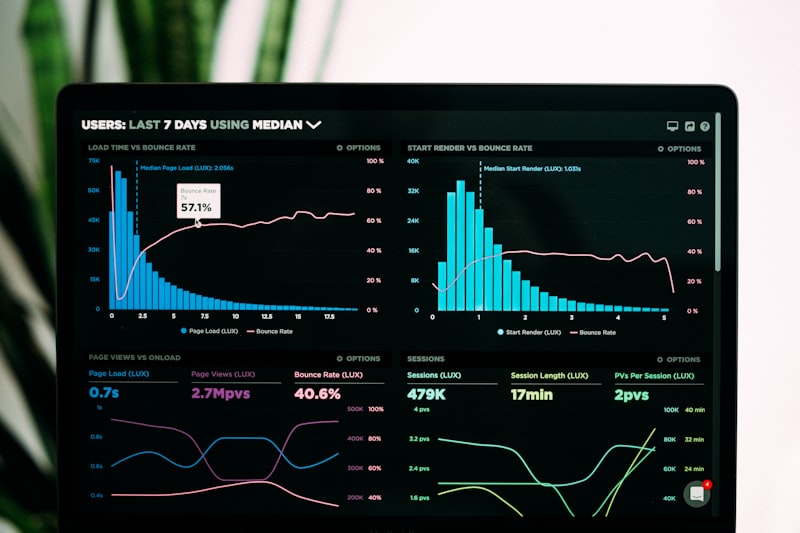
The Complete Guide to Dropshipping Business Profits in 2025
Disclosure: This post may include affiliate links. We only recommend what we've personally used and verified.
Glen's Dropshipping Reality: $12,000 Lost in 8 Months
I tried dropshipping for 8 months in 2022 after seeing countless "success stories" on YouTube. I invested $12,400 total: $3,200 in Facebook ads, $2,800 in product testing, $1,400 on store setup and tools, plus $5,000 in failed inventory purchases. My total revenue? $3,847. Net loss: $8,553.
The brutal truth: 95% of dropshipping stores fail within their first year. High ad costs, supplier issues, chargebacks, and customer service nightmares made it unsustainable. I spent 60+ hours/week for months with nothing to show for it.
My Failed Numbers Breakdown:
- • Facebook ads spent: $3,200 (2.1% conversion rate)
- • Product costs: $2,800 (tested 47 products)
- • Monthly tools/apps: $175/month x 8 months = $1,400
- • Chargebacks/returns: $847 (22% of revenue)
- • Best month revenue: $1,247 (still lost money on ads)
Dropshipping remains one of the most marketed online business models in 2025, but the reality is far harsher than YouTube gurus suggest. According to Oberlo's dropshipping statistics, only 10-20% of dropshipping businesses survive their first year. This comprehensive guide reveals the real costs, challenges, and why most fail.
How Much Money Can You Make with Dropshipping?
Dropshipping income varies significantly based on factors like product selection, marketing skills, and time investment. According to Statista's e-commerce market analysis and FTC business opportunity warnings, here's what dropshipping entrepreneurs typically earn (if they succeed):
Dropshipping Income Levels (2025)
- Beginners (0-3 months): $0-$1,000/month
- Intermediate (3-12 months): $1,000-$5,000/month
- Advanced (12+ months): $5,000-$20,000/month
- Expert dropshippers: $20,000-$100,000+/month
- Top performers: $100,000+/month

Real Dropshipping Startup Costs in 2025
Despite marketing claims about "low startup costs," successful dropshipping requires significant upfront investment. According to the Small Business Administration, most e-commerce businesses need substantial marketing budgets to succeed. Here's the REAL breakdown:
Essential Startup Costs
One-time Costs:
- • Shopify store setup: $29-$79/month
- • Domain name: $10-$15/year
- • Logo design: $20-$100
- • Theme purchase: $0-$300
- • Legal setup: $100-$500
Monthly Costs:
- • E-commerce platform: $29-$79
- • Apps and tools: $50-$200
- • Marketing/advertising: $1,500-$5,000 (minimum viable)
- • Virtual assistant: $300-$800 (if profitable)
- • Inventory management: $20-$50
- • Product testing budget: $500-$1,500/month
REAL Total startup cost: $5,000-$15,000 to have a fighting chance (based on my experience and industry data)
Key Factors That Determine Your Dropshipping Success
1. Product Selection
Your product choice is the foundation of dropshipping success. Look for products with:
- High demand and low competition
- 40%+ profit margins
- Reasonable shipping times (under 14 days)
- Good supplier reliability
- Scalable inventory availability
2. Supplier Relationships
Strong supplier partnerships are crucial for dropshipping success. Key factors include:
- Fast and reliable shipping
- Quality control standards
- Competitive pricing
- Good communication
- Inventory management systems
3. Marketing and Customer Acquisition
Effective marketing is essential for dropshipping profitability. Successful strategies include:
- Facebook and Instagram advertising
- Google Ads and SEO
- Influencer partnerships
- Email marketing campaigns
- Content marketing and social media

Best Dropshipping Niches for 2025
1. Health and Wellness
Health and wellness products continue to dominate dropshipping success stories. Popular subcategories include fitness equipment, supplements, beauty products, and wellness gadgets. This niche offers high profit margins (40-70%) and strong customer loyalty.
2. Pet Products
The pet industry is worth over $260 billion globally and continues growing. Pet owners are willing to spend premium prices on their pets, making this a highly profitable niche with excellent customer retention rates.
3. Home and Kitchen
Home improvement and kitchen gadgets remain popular dropshipping categories. Focus on innovative, problem-solving products that offer convenience and value to homeowners.
4. Electronics and Gadgets
Consumer electronics, phone accessories, and tech gadgets offer high sales volumes. While competition is fierce, the right products can generate substantial revenue.

Maximizing Your Dropshipping Profit Margins
1. Optimize Your Pricing Strategy
Pricing is crucial for dropshipping profitability. Consider these strategies:
- Test different price points to find the sweet spot
- Use psychological pricing ($19.99 vs $20.00)
- Bundle products to increase average order value
- Implement dynamic pricing based on demand
- Monitor competitor pricing regularly
2. Reduce Operating Costs
Lower costs directly improve profit margins:
- Negotiate better rates with suppliers
- Optimize shipping costs and methods
- Automate repetitive tasks
- Use efficient e-commerce tools
- Minimize return rates through better product descriptions
3. Focus on Customer Lifetime Value
Repeat customers are more profitable than new acquisitions:
- Implement email marketing for repeat purchases
- Create loyalty programs and discounts
- Provide excellent customer service
- Offer complementary products
- Build a brand community
4. Scale Your Advertising Effectively
Profitable advertising is key to dropshipping success:
- Start with small budgets and scale winners
- Test multiple ad creatives and audiences
- Track return on ad spend (ROAS) carefully
- Diversify across multiple platforms
- Retarget website visitors and past customers

Common Dropshipping Mistakes That Kill Profits
1. Choosing Low-Quality Suppliers
Poor supplier relationships lead to customer complaints, returns, and negative reviews. Always vet suppliers thoroughly and order samples before committing to partnerships.
2. Ignoring Customer Service
Excellent customer service is crucial for dropshipping success. Respond to inquiries quickly, handle returns professionally, and maintain clear communication throughout the process.
3. Focusing Only on Trending Products
While trending products can generate quick sales, they often have short lifespans and high competition. Build a sustainable business with evergreen products and loyal customers.
4. Underestimating Marketing Costs
Many beginners underestimate the cost of customer acquisition. Budget at least 20-30% of your revenue for marketing and advertising to maintain sustainable growth.
5. Not Testing and Optimizing
Successful dropshipping requires constant testing and optimization. Test products, ad creatives, landing pages, and pricing strategies regularly to improve performance.

Legal and Tax Considerations for Dropshipping
Business Structure and Registration
Establish your dropshipping business legally by:
- Choosing the right business structure (LLC, Corporation, etc.)
- Registering your business with state authorities
- Obtaining necessary licenses and permits
- Getting an EIN (Employer Identification Number)
- Setting up business banking accounts
Tax Obligations
Dropshipping businesses must handle various tax obligations:
- Sales tax collection and remittance
- Income tax on business profits
- Self-employment tax if operating as sole proprietor
- Quarterly estimated tax payments
- International tax considerations for global suppliers
Consumer Protection and Compliance
Ensure compliance with consumer protection laws:
- Clear return and refund policies
- Accurate product descriptions and images
- Privacy policy and terms of service
- GDPR compliance for European customers
- FTC disclosure requirements for advertising
Your 90-Day Dropshipping Launch Plan
Days 1-30: Foundation
- • Research profitable niches
- • Set up Shopify store
- • Find and vet suppliers
- • Create business accounts
- • Design store and add products
Days 31-60: Launch
- • Launch marketing campaigns
- • Process first orders
- • Optimize store based on data
- • Build customer service systems
- • Test and refine products
Days 61-90: Scale
- • Scale profitable campaigns
- • Add winning products
- • Implement automation
- • Build repeat customer base
- • Plan for growth
The Future of Dropshipping in 2025
The dropshipping industry continues to evolve with new technologies and changing consumer behaviors. Successful dropshippers in 2025 will need to adapt to:
- Increased focus on sustainability and ethical sourcing
- AI-powered customer service and personalization
- Faster shipping expectations and localized fulfillment
- Social commerce and influencer partnerships
- Enhanced mobile shopping experiences
Despite increased competition, dropshipping remains a viable business model for entrepreneurs willing to invest time and effort into building a genuine brand and providing value to customers.
Use our calculator above to project your dropshipping profits and start building your e-commerce empire today. Remember, success in dropshipping comes from persistence, continuous learning, and customer-focused strategies.